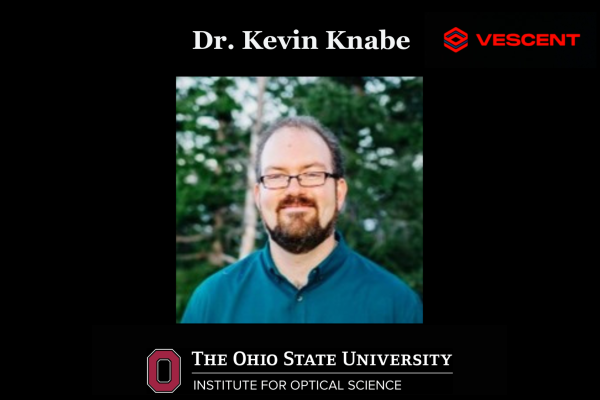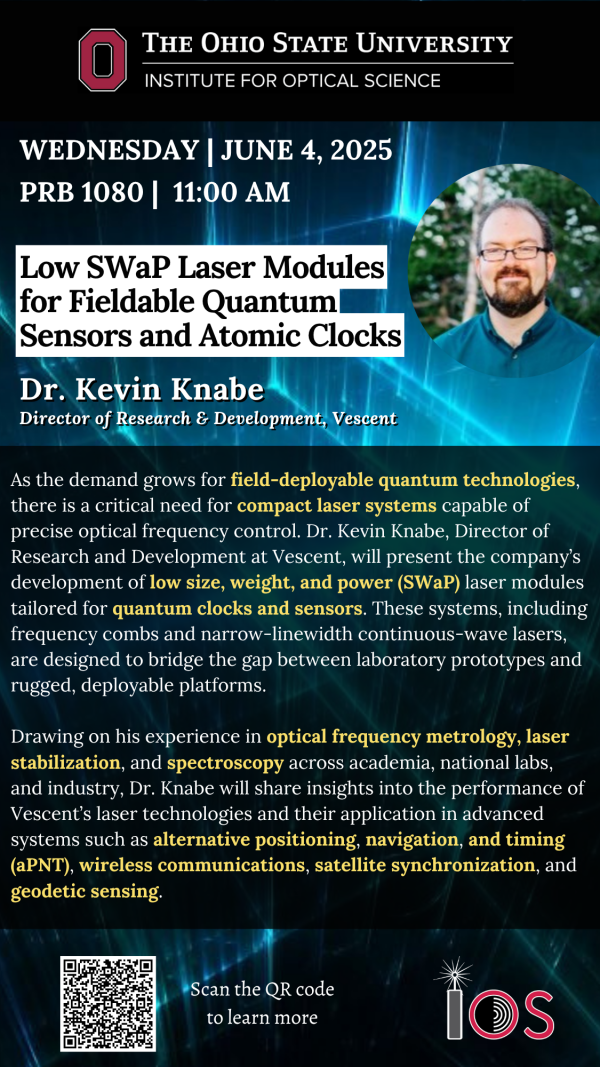
Low SWaP Laser Modules for Fieldable Quantum Sensors and Atomic Clocks
Kevin Knabe
Director of Research & Development, Vescent
Time: Wednesday, June 4th 2025 at 11:15AM
Location: Physics Research Building 1080 and Zoom
Abstract: There is a growing need for rapid system verification testing of laser technologies required for field-deployed quantum sensors, where tight control of the optical frequencies is required to manipulate internal states of atoms or molecules. Vescent is developing modular, low size, weight, and power lasers which seeks to bridge the gap between breadboard prototypes and single-application designs. These frequency comb and cw laser modules address the core electro-optic functions that are demanded by quantum clocks and sensors. This presentation will describe details of this ecosystem, present performance data, and describe the results of several on-going fielded implementations.
Speaker bio: Dr. Knabe is the Director of Research and Development at Vescent and oversees all government programs and low TRL development of new technologies. His history of optical frequency metrology, spectroscopy, and general laser stabilization in academia (Kansas State), government labs (NIST-Boulder), and industry (Raytheon, Stable Laser Systems, Vescent) has helped refine and optimize the requirements for low SWaP laser modules that Vescent has been developing for deployed quantum applications. The technologies that Vescent has been pursuing under his direction include optical frequency combs, narrow linewidth lasers, and low noise control electronics for quantum timing and sensing applications such as alternative positioning, navigation and timing (aPNT) systems, multi-static synthetic aperture radar (SAR), 5G-and-beyond wireless communication, satellite synchronization, and geodetic sensing.
Join on Zoom
- No Registration Needed -

Refreshments will be provided.
This event is open to the public.
What is the Institute for Optical Science?
The Institute for Optical Science is a community of multidisciplinary researchers studying the fundamental properties of light and harnessing these properties in practical applications for significant benefit to society.






